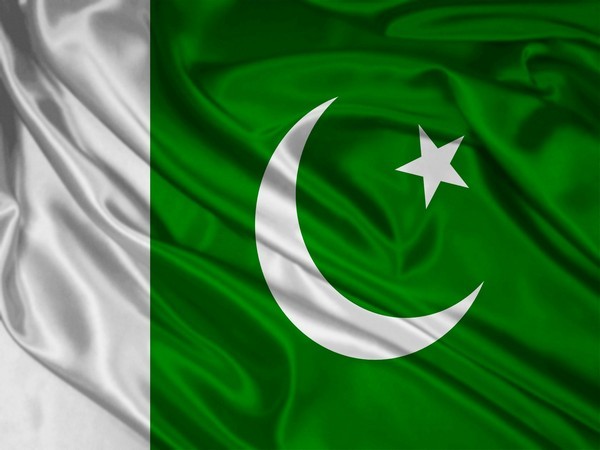Grave human rights violations continued unabated, including enforced disappearances, torture, crackdowns on peaceful protests, attacks against journalists and violence against religious minorities and other marginalised groups in Pakistan, reported Amnesty International South Asia.
Moreover, political upheaval leads to major uncertainty. An economic crisis severely hampered people’s economic rights. Climate change exacerbated heat waves followed by devastating floods, which killed many and undermined a range of rights. Flooding followed, mostly affecting the provinces of Sindh and Balochistan. More than 1,100 people died and 33 million were affected.
Nearly 750,000 people were left without access to safe and adequate housing, education or health infrastructure. Large swathes of agricultural land were flooded, creating fears of a looming food shortage crisis, driving up prices.
On 9 April, Imran Khan was ousted as prime minister after a controversial vote of no-confidence in parliament. On 11 April, parliament elected Shehbaz Sharif, leader of the Pakistan Muslim League-Nawaz (PML-N), as the new prime minister, prompting weeks of political unrest during which Imran Khan’s supporters protested across the country, reported Amnesty International.
The ousting was widely viewed as Imran Khan falling out of favour with the country’s all-powerful military, which was alleged to have supported the move to remove him from power.
Meanwhile, State officials continued to use enforced disappearances to target human rights defenders, journalists and people voicing criticism of the authorities, reported Amnesty International.
According to the Commission of Inquiry on Enforced Disappearances, as of 31 October at least 2,210 cases – likely many more – remained unresolved.
Intimidation of families and victims seeking justice frequently continued for years after their loved ones forcibly disappeared. In June, journalists Nafees Naeem and Arsalan Khan were abducted separately by the authorities; both were released after 24 hours.
On 28 April, Baloch student Bebagr Imdad forcibly disappeared while visiting a friend at Punjab University in Lahore. He was released 13 days later.
For the second time in just over a year, on 21 October the National Assembly reportedly passed a bill criminalizing the practice of enforced disappearances.
By the end of the year, the bill was not enacted as it had not been passed by the Senate, and it had not been made available to the public.
Amnesty International documented the frequent use of enforced disappearances in the province of Balochistan. These increased following a suicide bombing at the University of Karachi on April 25, claimed by the Balochistan Liberation Army, which killed four people. Baloch activists told the media that the state was using the attacks as an excuse to target Baloch women, activists and protesters.
The media reported that two Baloch women activists had been abducted within a week. On June 7, students Doda Ellahi and Gamshad Baloch forcibly disappeared from their homes in Karachi. Following four days of peaceful protests they were released on June 14.
Activists and families of people who forcibly disappeared held peaceful protests which were largely met with unlawful use of force, intimidation or arbitrary detention.
On June 13, the police used unlawful force to disperse protesters outside the Sindh Assembly in Karachi. One video of the incident showed uniformed police officers, some holding sticks, approaching sitting protesters.
The police proceeded to violently grab men and women and drag them along the ground, before throwing or forcing protesters into police vehicles, reported Amnesty International.
The authorities further tightened control of the media. Media workers reported increased coercion, censorship and arrests of journalists.
On July 5, police arrested journalist Imran Riaz Khan on sedition-related charges related to criticism of the military. He was arrested under provisions of the Penal Code, including defamation, and various sections of the draconian Prevention of Electronic Crimes Act.
On May 21, Shireen Mazari, a senior leader of the PTI political party, was detained by police near her home in Islamabad. She was arrested in connection with a 1972 land dispute, but her family suggested that the arrest was politically motivated due to her criticism of the government and the military.
A case was registered against her daughter, Imaan Hazir-Mazari, for making “derogatory” statements against the army following her mother’s arrest.
On July 1, unidentified men attacked Ayaz Amir, a senior analyst with Dunya News. Days earlier he had allegedly criticized Imran Khan and the military during a seminar.
In October, Arshad Sharif, a journalist and well-known supporter of Imran Khan, was killed in Kenya, where he had allegedly taken refuge after facing threats in Pakistan.
Also, blasphemy allegations continued to spark violence against religious minorities. In January a woman was sentenced to death for allegedly “blasphemous” messages she sent over WhatsApp.
A man was lynched to death by a group of people after being accused of burning pages of the Quran in February in the district of Khanewal. In October, in Ghotki, a man with physical disabilities was forcibly drowned at the shrine where he lived by a visitor after being accused of blasphemy, reported Amnesty International.
Violence against women and girls
The Domestic Violence (Prevention and Protection) Bill (2021) was not enacted by the National Assembly, despite being passed by the senate in 2021. Several highly publicized cases highlighted the ongoing problem of violence against women.
On February 24, Zahir Jaffer was sentenced to death for the torture, rape and murder of Noor Mukadam in 2021. Convictions were otherwise very low in cases of gender-based violence, making the guilty verdict against Zahir Jaffer significant.
Forced conversions of Hindu, Christian and Sikh women and girls continued. Victims, particularly those from lower socio-economic backgrounds, were unable to access justice.
Scheduled Caste Hindus (also known as Dalits) were disproportionately disadvantaged in accessing services, resources and opportunities. Many remained trapped in bonded labour and were subjected to rape and violence.
Ahmadis reported facing continued discrimination. In July, five Ahmadis were arrested for performing a ritual animal sacrifice at Eid-ul-Adha, an act allowed only for Muslims.

